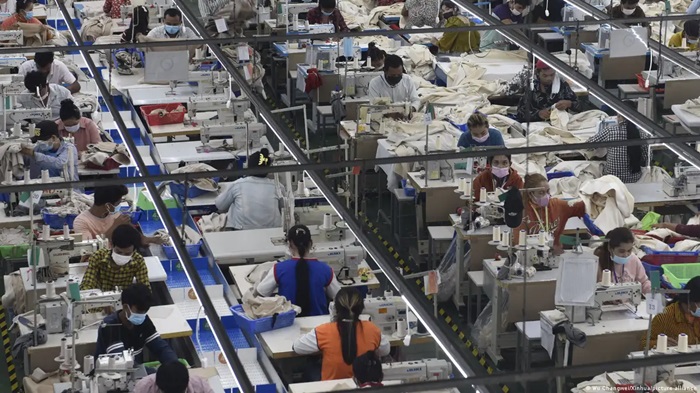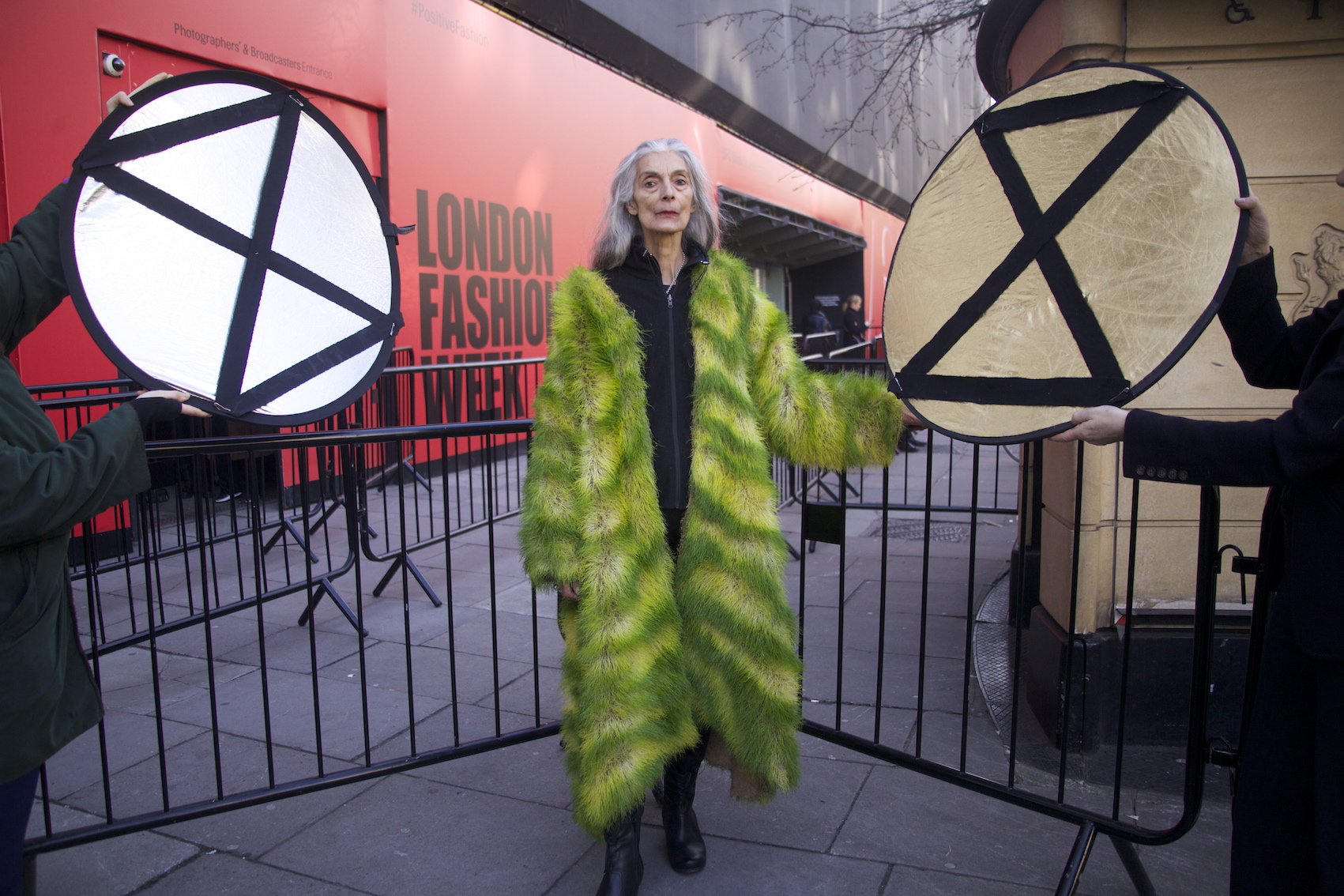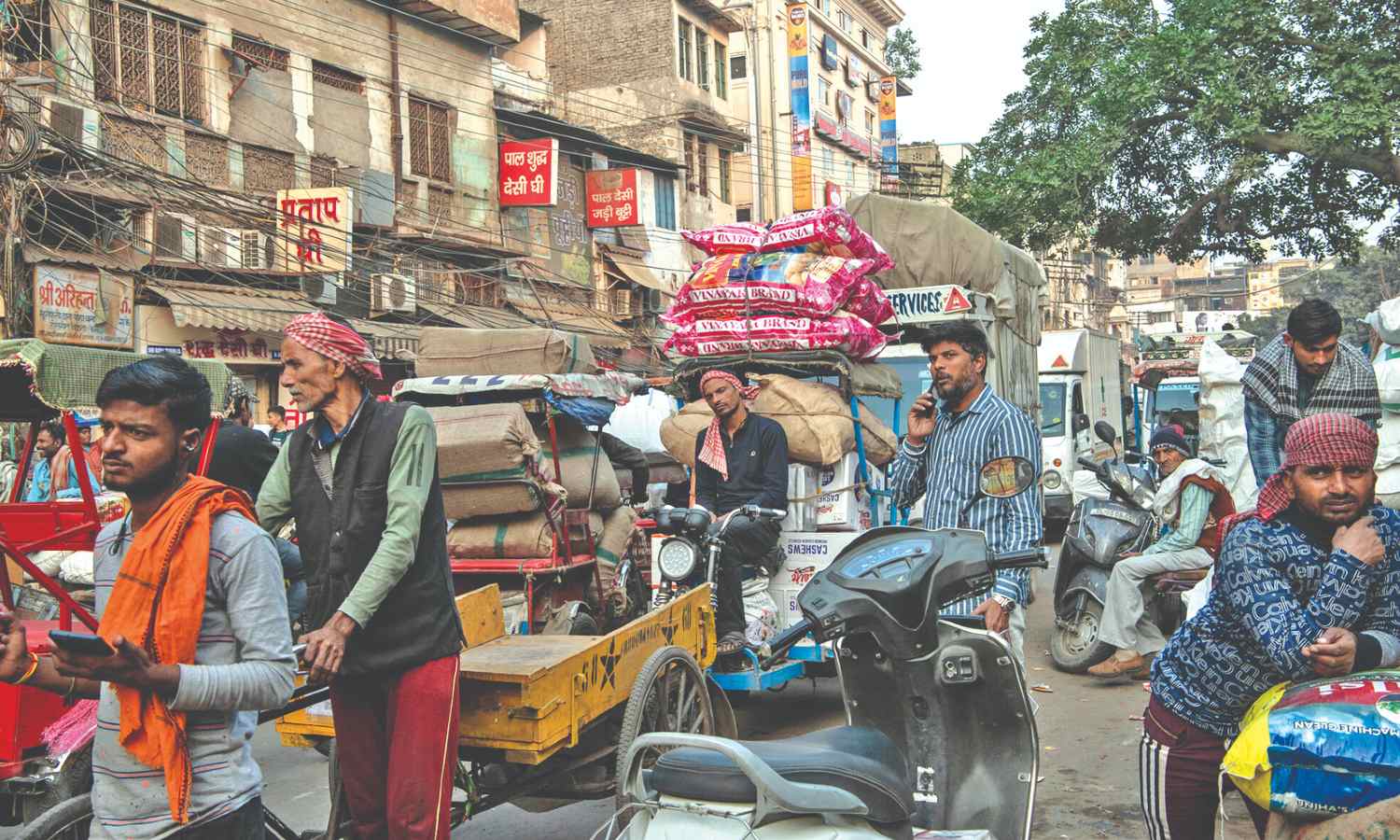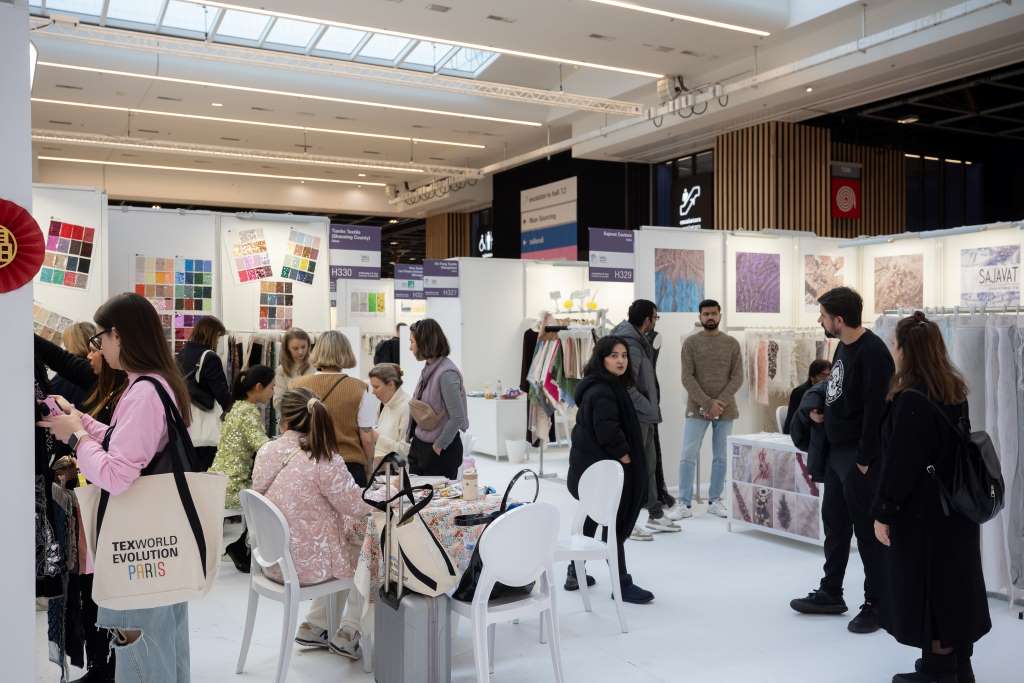FW
India’s textile exports fell by 24.3 per cent during the first nine months of the current calendar year. Exports of cotton textiles fell by 3.58 per cent. Textile and clothing exports fell by 5.71 per cent and garment exports by 12.02 per cent. However, textile and clothing exports showed a marginal growth of 0.54 per cent during the first half of the current fiscal as compared to the corresponding period of the previous year.
The industry has been passing through a severe recession for almost 18 months and has called for a slew of policy measures. It appealed for the release of adequate funds to clear all pending TUFs subsidies and a three per cent interest subvention for all textile products. It wants the hank yarn obligation to be reduced to 20 per cent from 40 per cent, the cotton trading policy to be industry-friendly, and the five per cent import duty to be scrapped.
The industry also feels there is a need for addressing raw material issues and implementing a direct transfer of cotton subsidy to farmers. World trade has been undergoing certain structural changes and this has had a severe impact on Indian exports.
Invista has unveiled a Lycra hybrid technology for knit denim fabrics. These fabrics combine of comfort and flexibility of knits with the authentic aesthetics and performance of woven fabrics. What distinguishes this technology from existing knit denim is that the Lycra hybrid fabrics integrate a true denim look and feel with low growth, low shrinkage, and multi directional stretch. The fabrics can be engineered for use in a range of different garment types, each serving different consumer needs.
Invista began working on the new technology several years ago when it saw that performance fabrics were having an increasingly important role in the denim industry. The fabrics employ a specific patent construction to achieve the look and feel of traditional denim, but with much greater stretch and flexibility. Another unique function of the technology is that the fabric can be engineered to have a particular level of stretch.
The company has been able to achieve fabrics with over 100 per cent stretch in one direction and more than 50 per cent in the other, with less than five per cent growth. The Lycra hybrid fabrics have been segmented into three different categories, each its own specific performance levels.
www.invista.com/
Asia World expo is being held in Hong Kong, October 27 to 30. The Expo presents the widest selection of fashion items in Asia, including apparel, accessories, footwear and fabrics.
With more than 1,300 booths, the shows brings together top suppliers from mainland China, India, Korea, Hong Kong, Taiwan, Vietnam and other Asian territories. Buyers will find a wide range of products including casual and fashion bags, shoes and hosiery, hair accessories, fashion jewelry, scarves and shawls, ready-to-wear garments, functional fabrics, sports and casual wear, sweaters and knitwear, underwear, and swimwear.
The event is quickly evolving from a substantially original equipment manufacturer sourcing show to an event where 30 to 40 per cent of exhibitors are marketing their own designs and brands. As a result, it not only provides a sourcing platform for volume buyers and retailers like Zara, H&M, Macy’s, Victoria’s Secret and Marks & Spencer, but also helps entrepreneurial buyers from Amazon, eBay, and boutique shops across Asia to find suppliers best suited to their needs.
Asia World helps manufacturers move up the value chain by connecting them with young designers and new technologies applicable to fashion.
www.asiaworld-expo.com › Home › Event Calendar
Experts say Bangladesh's readymade garments (RMG) sector, is facing serious shortage of skilled workforce, which is likely to slow down upgradation and transformation of the garment industry. Also there is a lack of investment in new machinery and technologies.
Manpower shortage poses a major constraint to realisation of the sector's true growth potential, in terms of productivity and production of high-end apparels. At present the country's apparel sector is facing the shortage of about 0.11 million skilled manpower, from floor to executive level, as per the Directorate of Textile (DoT).
If exporters fail to fill up the positions of highly skilled middle management officials and skilled workers needed in the sector, this problem will become more complex. The gap may be as high as 182,000 by the year 2021 when the country's RMG sector is planned to hit US$ 50 billion export, according to a report by DoT. Information from the Bangladesh Garment Manufacturers and Exporters Association (BGMEA), the Bangladesh Knitwear Manufacturers and Exporters Association (KBMEA) and the Bangladesh Textile Mills Association (BTMA) provided information for the DoT report.
Md. Ismail, Director, DoT, argues they are unable to produce enough skilled manpower to keep pace with demands from the apparel sector. The government, though, has already undertaken a plan to meet the shortage of textile engineers and technologists in the country by a proposal to set up at least two dozen textile engineering colleges and vocational institutes. The low educational level of workers is contributing to inefficiency in the garment factories at present. There is a 25 per cent shortage of skilled workers in Bangladesh's RMG industry at present, according to industry sources.
The recently-negotiated Trans-Pacific Partnership (TPP) could boost Vietnam duty-free access to the US market. However, this may not be positive for the Indian textile and garment industry.
For Indian garment exporters, Vietnam could be the new Bangladesh. This is because of a massive duty disadvantage vis-a-vis competitors, stringent labour laws, poor infrastructure, and inadequate policy support in India. Due to the lure of duty-free access to the US and other TPP markets, some Indian companies may shift base to Vietnam, says analysts, just as they did some years ago to Bangladesh to grab duty advantage in exports and low labour costs.
Vietnam is now the world’s third-largest garment exporter. The US accounted for 22-30 percent of India’s garment exports in recent years and Indian exporters have to pay duty in the range of 14-32 percent for the shipment of textiles and garments there. Thus, the threat seems to be real.
As Shailesh Pathak, Executive Director, Bhartiya Group, says that they employ 6,000 people in their fashion business in Chennai and Bangalore, and there is a high probability that 4,000 of those jobs may move to Vietnam in the next one year. However, some other players, while recognising potential threat from Vietnam, chose to await the full text of the TPP.
Director, Arvind Mills and the newly-appointed Chairman of the Confederation of Indian Textile Industry, Naishadh Parikh, said that the pact suggests there is a potential risk of investment and employment moving to select TPP countries, especially Vietnam. However, he believes that until the full text is made public, it’s too early to say if Indian companies would shift base soon, as any such move depends on several other factors as well, including familiarity of the market.
VF, the American clothing company’s next generation of jeans is Cool Vantage and JadeFusion based on a marriage of market intelligence, textile and design innovation, which keeps you comfortable even in the height of summer. Stephen Dull, Vice-President, Strategy & Innovation, VF Corp, says their customers want performance comfort and style, which is a magic formula. And there are different ways to make denim, some of which are lighter and others heavier. Dull eplians first they did a global scan of technologies and fabrics, and took the most promising ones and tested. Consumer research said that burning, heaviness, wetness, were all problems and people wanted to be cooler, drier and more comfortable.
Dull stressed on consumer insight vehemently saying that VF was good at combining technology with design and consumer insight. With consumer research they got to ‘refreshment’ in denim; cool is a lower level benefit, he states.
However, it was not just about developing the fabric, design and fit were important too as eventually it is all about how comfortable and functional the garment is. Recalling the process Dull states that after they developed the fabric they used Kansai design techniques in Japan had Kansai consultants who helped with the design aspects of comfort.
Besides, the concept of this new denim was also a strong part of VF’s strategy. However, for the brand, it does not end with the product. They have a lab that uses cognitive neuroscience, so there was a lot of work involved through the commercialisation with a 360 marketing campaign, said Dull.
Pakistan's ready-made garment (RMG) industry will get a boost from the US through dedicated vocational centres and improvements in working conditions. Pakistan’s Prime Minister Nawaz Sharif and US President Barack Obama, during a recent meeting, reaffirmed that the two countries have a mutual interest in expanding bilateral trade and investment.
Prime Minister Sharif restated the importance of market access for Pakistan as the most effective, mutually beneficial, and durable form of bilateral economic partnership. President Obama, on the other hand indicated that the US would help Pakistan create conditions to expedite trade and investment-driven growth.
Thus, Pakistan’s RMG sector capabilities will be upgraded with the help of the US. This will be done by supporting dedicated vocational centres and improvements in industry labour conditions. Besides, Pakistan’s International Labour Organization International (ILO) Labour Standards Textile programme will also be enhanced by the help of the US and it will also support the launch of an ILO Better Work Programme. Moreover, an investment event in New York will be supported by the US to highlight opportunities in Pakistan’s RMG industry and other sectors.
Apart from this pledge, the US is also set to enhance outreach and training efforts to boost GSP (Generalized System of Preferences) utilisation, and support Pakistan’s efforts to sanction and implement the World Trade Organization (WTO) Trade Facilitation Agreement (TFA).
To set up a garments estate at a special zone in Chittagong, apparel manufacturers from the district have demanded allocation of land. Many industrial units were shifted to Dhaka and its adjoining areas due to the excessive price of land in Chittagong, say garment owners. Besides, the unavailability of a large chunk of land in the district was a major setback for them, they added.
Abdus Salam, Chairman, Chittagong Development Authority (CDA) met a delegation of the newly elected body of the Bangladesh Garment Manufacturers and Exporters Association (BGMEA) headed by Moinuddin Ahmed Mintu recently. Mintu urged Salam to cooperate to construct a separate industrial village for the apparel manufacturers outside the EPZ areas in Chittagong.
Apparel business in the port city dates back to 1978 when Desh Garments was set up. Also, the first and the largest, Export Processing Zone is situated in Chittagong. The apparel sector earned 40 per cent of its total export income from Chittagong at one time and now this has dipped to a mere 15 per cent. The sharp dip is due to multiple reasons, including gas and electricity crisis, absence of an industrial village outside the EPZ and the astronomical price of land in Chittagong, according to entrepreneurs.
Salam, on the other hand said they would consider the proposal put forth by the BGMEA. He added that the CDA reserves the power to acquire land anywhere in Chittagong and he has assured the apparel manufacturers that land for setting up a special zone could be acquired, but it is subject to the availability of land.
Kumar Mangalam Birla’s stake in Century Textiles and Industries could rise by almost five per cent in the next few weeks as he plans to convert warrants into equity before the deadline of December 18 when the instruments lapse. Century Textiles, founded by his grandfather Basant Kumar Birla, had issued 1.86 crore warrants to private companies owned by the Aditya Birla Group chairman last year.
Of this, 84.7 lakh warrants were converted into equity shares in March this year, taking the promoter stake in the company to over 45 per cent from 40 per cent in December 2014. Kumar Mangalam Birla now intends to convert the rest of the warrants into equity. After this, promoter group stake in Century will rise to 50.21 per cent from 45.22 per cent currently.
The promoter of Century Textiles had refrained from converting their entire warrants to equity in one go as it would have triggered an open offer. Sebi rules allow for creeping acquisition or buying shares from the secondary market only up to five per cent in a fiscal. The warrants were issued at Rs 355 each in 2014.
Century Textiles is known for cotton textiles and has a presence in yarn, caustic soda, salt, cement, pulp, paper, denim.
www.centurytextind.com/
Owner and Chairman of Welspun Group, B K Goenka has shed his operational responsibilities to take up more strategic and nurturing ones. This move is to empower professionals as the steel to home textiles conglomerate turns into a more customer-focussed group. Goenka stated that the group has become quite large with international operations and a need to be system-driven, with essential risk mechanisms and stronger corporate governance norms. His role will be more of a group trustee, he added. Goenka will now look into investing in start-ups aligned with the group's businesses.
Global consultant McKinsey has been hired by the $3-billion group to craft 'Vision 2020' and build a new organisational DNA for the group. The company earns most of its revenues from selling pipes to global oil companies and towels and bed sheets in both, local and overseas markets.
According to consultants, though the group has an advantage of a first generation entrepreneur managing the business with a big chunk of the revenues coming from overseas, a change in approach is needed for a transformation into a customer-centric business. Supporting this view, Arvind Singhal, Chairman and Managing Director at consultancy firm Technopak said that Welspun was more of a business-to-business group which, does not directly sell to consumers, and so the transition to a B2C (selling goods to retail customers) needs a different DNA.
Besides, the group needs to move steadily in terms of promoters getting out of operating roles so that the vision and entrepreneurial focus does not diminish, Singhal added. He also feels that Goenka has time and can comfortably make it a professionally led group in the next 5-10 years.












